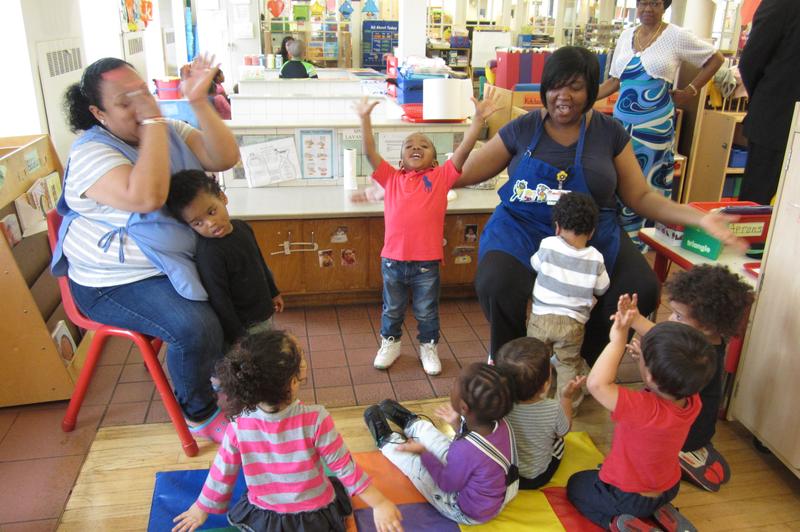 SchoolBook
SchoolBook
Day Care Centers Claim They're Losing Teachers to Better Funded Pre-K

Privately run day care programs are losing certified teachers because educators can make more money at the growing number of pre-K programs run by Department of Education, according to the Day Care Council of New York.
The advocacy group, which represents 96 non-profits that operate city-funded childcare programs, surveyed its members last fall. In the last two years, half of its member agencies said they had lost an average of two certified teachers to the Department of Education. Slightly more, 56 percent, said they are operating with certified teacher vacancies.
"We found many of our members have to wait six months to a year to hire certified teachers because they leave our sector and go to the Board of Ed," said Andrea Anthony, executive director of the Day Care Council of New York. "So those classrooms are empty."
Roughly 80 percent of the council's 213 centers responded to the survey during the fall. That was around the same time the city announced more than 68,000 children were enrolled in full day pre-K classes, compared to 20,000 in 2011.
Community based organizations, which provide roughly half of those seats, traditionally paid their teachers less than the Department of Education. Mayor Bill de Blasio raised their salaries to $44,000 or $50,000, depending on education level, specifically to avoid an exodus.
But Anthony said working conditions are still more favorable at the Department of Education. "They're paying much more than $50,000, plus they have different benefits and they only work 10 months out of the year," she explained, versus the community based organizations that have year-round classes.
In response to the survey, mayoral spokesman Wiley Norvell said the city was working closely with every day care center to make sure they have the personnel they need. "We have not encountered any unusual staffing challenges to date," he said.
Anthony said the pay gap is even bigger in Early Learn classes serving infants to toddlers, because those teachers never got the salary bump awarded to pre-k teachers. Some of them left to make more money as pre-k teachers. But those who stayed in Early Learn make an average of $35,000 a year. Childcare center directors also make less money than fully certified pre-k teachers with masters degrees.
"We are a social service agency and oftentimes we have to connect our own staff to a food bank or rent subsidized housing," said Michelle Paige, director of early childhood education at Union Settlement, which runs seven centers serving hundreds of children. "A lot of people cannot afford healthcare for themselves and their families."
The Early Learn programs have had trouble competing with pre-k programs in other ways, because of a lack of funding.
Children's advocates are pressing the mayor to boost funding in next year's budget to make private pre-k and pre-school teacher pay more competitive with public school salaries. The Day Care Council has proposed wage increases for its unionized workers, but it said it can't do that without an increase in city dollars.
When asked about the wage discrepancy, Mayor de Blasio said he believes fundamentally in "the power of childcare." He said the city plays a supportive role in negotiations between the Day Care Council and its unions.
"We certainly are engaged with them as an important player indirectly," he said. "We believe those negotiations are making real progress. We believe it will get to resolution in the near term. And we'll have an opportunity to see how we can address some of those issues."
De Blasio announced on Wednesday that he wants the minimum wage to rise to $15 an hour for all City employees who work at not-for-profit organizations contracted with the city by the end of 2018. The Day Care Council said that will help janitors, cooks, and teaching aids who make less than that. But if the teachers and day care directors don't get a boost, Anthony said those lower paid workers won't have any place to work.
"You can't open a child care center without the professional teachers," she stated.